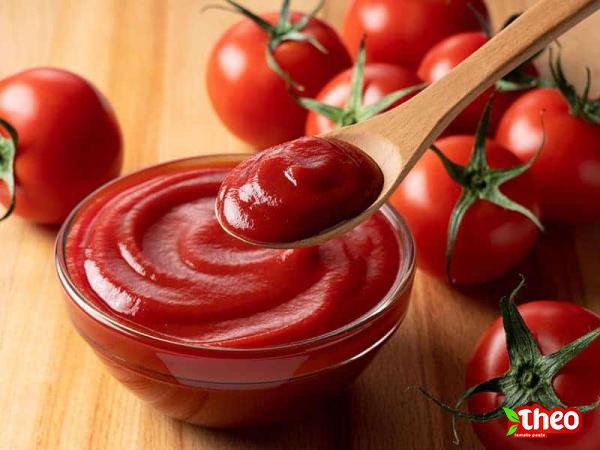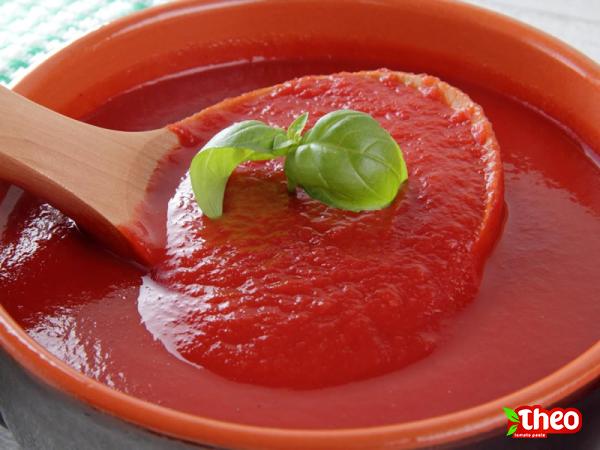Tomato paste and sauce are versatile culinary ingredients that are commonly used in various cuisines around the world. Both tomato paste and sauce are made from tomatoes but differ in terms of their consistency, flavor, and usage. Tomato paste is a concentrated form of tomatoes, made by cooking down ripe tomatoes and removing the seeds and skin. On the other hand, tomato sauce is a thinner, smoother, and more liquid form of tomatoes, often mixed with other ingredients like herbs and spices. Tomato paste is typically darker and thicker in texture, with a more intense tomato flavor. It is commonly used as a base for soups, stews, and sauces, providing a rich and concentrated tomato taste. Its thick consistency helps to thicken sauces and add depth to recipes. Tomato paste is also a popular ingredient in homemade pizza and pasta sauces, as it enhances the flavor and adds a vibrant red color to the dish. Tomato sauce, on the other hand, is a more diluted form of tomatoes, often cooked with added ingredients such as onions, garlic, herbs, and spices. It has a smoother texture and a lighter flavor compared to tomato paste. Tomato sauce is widely used in numerous dishes, including pasta, lasagna, pizza, and as a base for various tomato-based sauces. It can also be used as a dipping sauce for snacks like fries and mozzarella sticks. Both tomato paste and sauce offer nutritional benefits. They are rich in vitamins A and C, as well as antioxidants such as lycopene. Lycopene is a natural pigment responsible for the red color of tomatoes and has been associated with numerous health benefits, including reducing the risk of certain types of cancer and heart diseases.
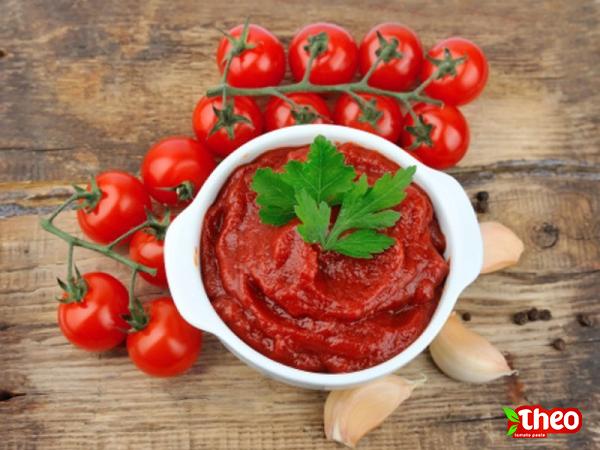
tomato paste
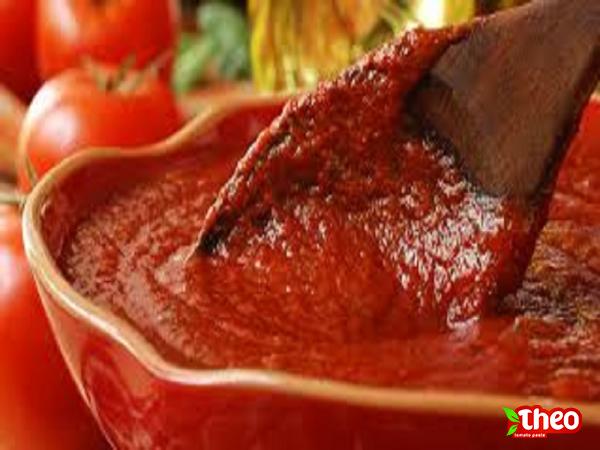 When it comes to purchasing tomato paste and sauce, there are a few considerations to keep in mind. It is important to read the labels and choose products made from high-quality tomatoes and minimal additives or preservatives. Some tomato paste and sauce brands may add sweeteners, preservatives, or artificial flavors, so it is crucial to select products that align with personal dietary preferences and requirements. Additionally, some individuals may opt for canned tomato paste and sauce for convenience, while others prefer making their own from fresh tomatoes. Making tomato paste or sauce from scratch allows for more control over the ingredients used and can result in a fresher and more flavorful finished product. In conclusion, tomato paste and sauce are essential ingredients in countless recipes, adding depth, flavor, and color to dishes. While tomato paste is thick and concentrated, tomato sauce is thinner and more diluted. They both offer nutritional benefits and can be used in a variety of dishes. The choice between tomato paste and sauce ultimately depends on personal preference and the specific culinary purpose.Title: Tomato Paste and Sauce: A Booming Market in the Culinary Industry Introduction: Tomato paste and sauce have become integral components of the culinary world, adding depth, flavor, and color to an array of dishes across different cuisines. The demand for tomato paste and sauce continues to rise as consumers seek convenient and versatile ingredients that enhance the taste of their home-cooked meals. In this article, we will delve into the business aspects of the tomato paste and sauce industry, including market trends, key players, and future prospects.
When it comes to purchasing tomato paste and sauce, there are a few considerations to keep in mind. It is important to read the labels and choose products made from high-quality tomatoes and minimal additives or preservatives. Some tomato paste and sauce brands may add sweeteners, preservatives, or artificial flavors, so it is crucial to select products that align with personal dietary preferences and requirements. Additionally, some individuals may opt for canned tomato paste and sauce for convenience, while others prefer making their own from fresh tomatoes. Making tomato paste or sauce from scratch allows for more control over the ingredients used and can result in a fresher and more flavorful finished product. In conclusion, tomato paste and sauce are essential ingredients in countless recipes, adding depth, flavor, and color to dishes. While tomato paste is thick and concentrated, tomato sauce is thinner and more diluted. They both offer nutritional benefits and can be used in a variety of dishes. The choice between tomato paste and sauce ultimately depends on personal preference and the specific culinary purpose.Title: Tomato Paste and Sauce: A Booming Market in the Culinary Industry Introduction: Tomato paste and sauce have become integral components of the culinary world, adding depth, flavor, and color to an array of dishes across different cuisines. The demand for tomato paste and sauce continues to rise as consumers seek convenient and versatile ingredients that enhance the taste of their home-cooked meals. In this article, we will delve into the business aspects of the tomato paste and sauce industry, including market trends, key players, and future prospects.
Specifications of tomato paste
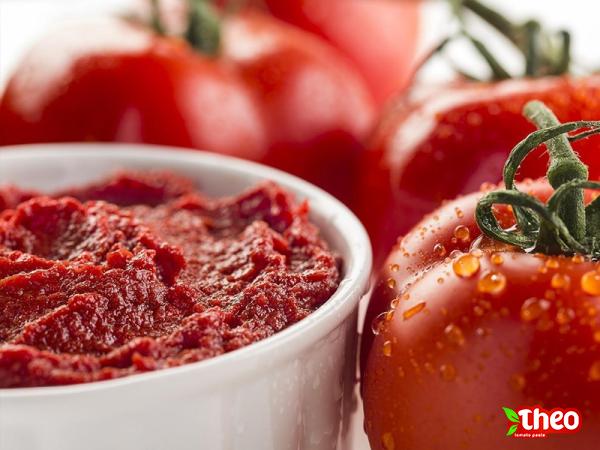 1. Growing Demand for Convenience: The fast-paced lifestyles of modern consumers have fueled the demand for convenient meal solutions, including tomato paste and sauce. With hectic schedules and limited time for cooking, consumers are seeking easy-to-use ingredients that can elevate the flavor of their dishes. Tomato paste and sauce enable consumers to prepare delicious meals in a shorter time, making them an attractive option for busy households. 2. Wide Usage in the Foodservice Sector: The foodservice industry plays a significant role in driving the demand for tomato paste and sauce. Restaurants, cafes, and catering services utilize tomato paste and sauce as essential ingredients in various dishes, such as pizzas, pasta sauces, and soups. The versatility of these products makes them a staple in commercial kitchens, ensuring consistent quality and flavor in the meals served. 3. Health-conscious Consumers: In recent years, there has been an increasing focus on health and wellness among consumers. Tomato paste and sauce, made from tomatoes, are perceived as natural and healthy choices due to their high vitamin and antioxidant content. As consumers become more health-conscious, they seek products that align with their dietary preferences, opting for tomato paste and sauce made from high-quality ingredients without artificial additives or preservatives. 4. Evolving Consumer Preferences: Consumer preferences are continuously evolving, and manufacturers in the tomato paste and sauce industry need to stay attuned to these changes. There is a growing demand for organic and non-GMO tomato paste and sauce, driven by consumers who prioritize sustainable and ethically sourced products. To meet these preferences, some manufacturers have started incorporating organic and non-GMO labels into their product lines. 5. Diverse Applications in the Culinary Industry: Tomato paste and sauce have a wide range of culinary applications, making them indispensable ingredients across various cuisines. From Italian dishes like spaghetti bolognese and margherita pizza to Mexican salsas and Indian curries, tomato paste and sauce form the foundation of countless recipes. This versatility ensures a steady demand for these products in the culinary industry. 6. Regional Market Trends: The market for tomato paste and sauce varies across regions, influenced by cultural preferences and local cuisines. In Europe and North America, tomato-based dishes like pasta sauces and ketchup dominate the market. In Asia, tomato sauce is popular for its usage in Indian curries and Chinese stir-fried dishes. Manufacturers need to understand these regional nuances to tailor their product offerings and marketing strategies accordingly.
1. Growing Demand for Convenience: The fast-paced lifestyles of modern consumers have fueled the demand for convenient meal solutions, including tomato paste and sauce. With hectic schedules and limited time for cooking, consumers are seeking easy-to-use ingredients that can elevate the flavor of their dishes. Tomato paste and sauce enable consumers to prepare delicious meals in a shorter time, making them an attractive option for busy households. 2. Wide Usage in the Foodservice Sector: The foodservice industry plays a significant role in driving the demand for tomato paste and sauce. Restaurants, cafes, and catering services utilize tomato paste and sauce as essential ingredients in various dishes, such as pizzas, pasta sauces, and soups. The versatility of these products makes them a staple in commercial kitchens, ensuring consistent quality and flavor in the meals served. 3. Health-conscious Consumers: In recent years, there has been an increasing focus on health and wellness among consumers. Tomato paste and sauce, made from tomatoes, are perceived as natural and healthy choices due to their high vitamin and antioxidant content. As consumers become more health-conscious, they seek products that align with their dietary preferences, opting for tomato paste and sauce made from high-quality ingredients without artificial additives or preservatives. 4. Evolving Consumer Preferences: Consumer preferences are continuously evolving, and manufacturers in the tomato paste and sauce industry need to stay attuned to these changes. There is a growing demand for organic and non-GMO tomato paste and sauce, driven by consumers who prioritize sustainable and ethically sourced products. To meet these preferences, some manufacturers have started incorporating organic and non-GMO labels into their product lines. 5. Diverse Applications in the Culinary Industry: Tomato paste and sauce have a wide range of culinary applications, making them indispensable ingredients across various cuisines. From Italian dishes like spaghetti bolognese and margherita pizza to Mexican salsas and Indian curries, tomato paste and sauce form the foundation of countless recipes. This versatility ensures a steady demand for these products in the culinary industry. 6. Regional Market Trends: The market for tomato paste and sauce varies across regions, influenced by cultural preferences and local cuisines. In Europe and North America, tomato-based dishes like pasta sauces and ketchup dominate the market. In Asia, tomato sauce is popular for its usage in Indian curries and Chinese stir-fried dishes. Manufacturers need to understand these regional nuances to tailor their product offerings and marketing strategies accordingly.
buy tomato paste
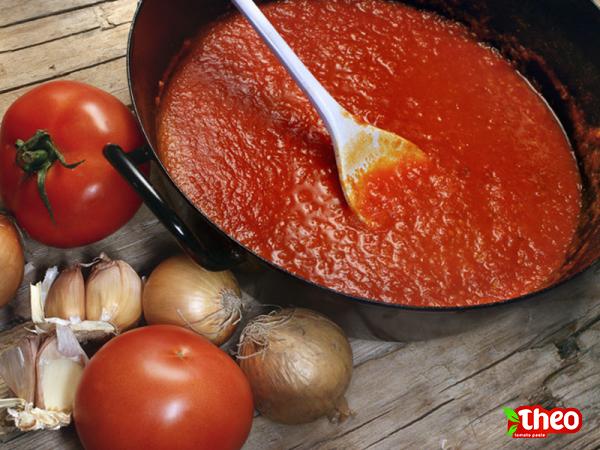 7. Key Players in the Market: The tomato paste and sauce industry consists of several key players that dominate the market. Companies such as Conagra Brands, The Kraft Heinz Company, and Del Monte Foods Inc. are among the leading manufacturers, with established brands and a wide distribution network. These companies invest in research and development to introduce new products and flavors, as well as to improve packaging designs and shelf life. 8. Rising Popularity of Ethnic Cuisines: The increasing popularity of ethnic cuisines, such as Italian, Mexican, and Asian, has contributed to the growing demand for tomato paste and sauce. As consumers explore different flavors and culinary experiences, they seek products that can replicate the authentic tastes of these cuisines. Manufacturers have responded by offering specialty tomato paste and sauce variants, tailored specifically for ethnic recipes, to cater to this demand. 9. Packaging Innovations: Packaging plays a crucial role in the tomato paste and sauce industry, facilitating convenience, storage, and transportation. Manufacturers are investing in packaging innovations such as resealable pouches, squeeze bottles, and portion-controlled packets to meet consumer demands. These innovations not only enhance convenience for consumers but also contribute to product shelf life and reduce food waste. 10. Future Prospects: The future of the tomato paste and sauce industry looks promising, with a steady growth trajectory anticipated in the coming years. Market research suggests that the increasing demand for convenience, coupled with the rising popularity of ethnic cuisines, will continue to drive market growth. Moreover, the growing awareness of the nutritional benefits of tomato-based products is likely to fuel the demand for high-quality tomato paste and sauce. Conclusion: Tomato paste and sauce are indispensable ingredients in the culinary world, providing depth, flavor, and color to a wide range of dishes. The demand for these products is driven by factors such as convenience, evolving consumer preferences, and the rise of ethnic cuisines. Key players in the industry are investing in research and packaging innovations to meet market demands. As the demand for healthy, flavorful, and versatile ingredients continues to grow, the tomato paste and sauce industry is poised for a prosperous future.
7. Key Players in the Market: The tomato paste and sauce industry consists of several key players that dominate the market. Companies such as Conagra Brands, The Kraft Heinz Company, and Del Monte Foods Inc. are among the leading manufacturers, with established brands and a wide distribution network. These companies invest in research and development to introduce new products and flavors, as well as to improve packaging designs and shelf life. 8. Rising Popularity of Ethnic Cuisines: The increasing popularity of ethnic cuisines, such as Italian, Mexican, and Asian, has contributed to the growing demand for tomato paste and sauce. As consumers explore different flavors and culinary experiences, they seek products that can replicate the authentic tastes of these cuisines. Manufacturers have responded by offering specialty tomato paste and sauce variants, tailored specifically for ethnic recipes, to cater to this demand. 9. Packaging Innovations: Packaging plays a crucial role in the tomato paste and sauce industry, facilitating convenience, storage, and transportation. Manufacturers are investing in packaging innovations such as resealable pouches, squeeze bottles, and portion-controlled packets to meet consumer demands. These innovations not only enhance convenience for consumers but also contribute to product shelf life and reduce food waste. 10. Future Prospects: The future of the tomato paste and sauce industry looks promising, with a steady growth trajectory anticipated in the coming years. Market research suggests that the increasing demand for convenience, coupled with the rising popularity of ethnic cuisines, will continue to drive market growth. Moreover, the growing awareness of the nutritional benefits of tomato-based products is likely to fuel the demand for high-quality tomato paste and sauce. Conclusion: Tomato paste and sauce are indispensable ingredients in the culinary world, providing depth, flavor, and color to a wide range of dishes. The demand for these products is driven by factors such as convenience, evolving consumer preferences, and the rise of ethnic cuisines. Key players in the industry are investing in research and packaging innovations to meet market demands. As the demand for healthy, flavorful, and versatile ingredients continues to grow, the tomato paste and sauce industry is poised for a prosperous future.



